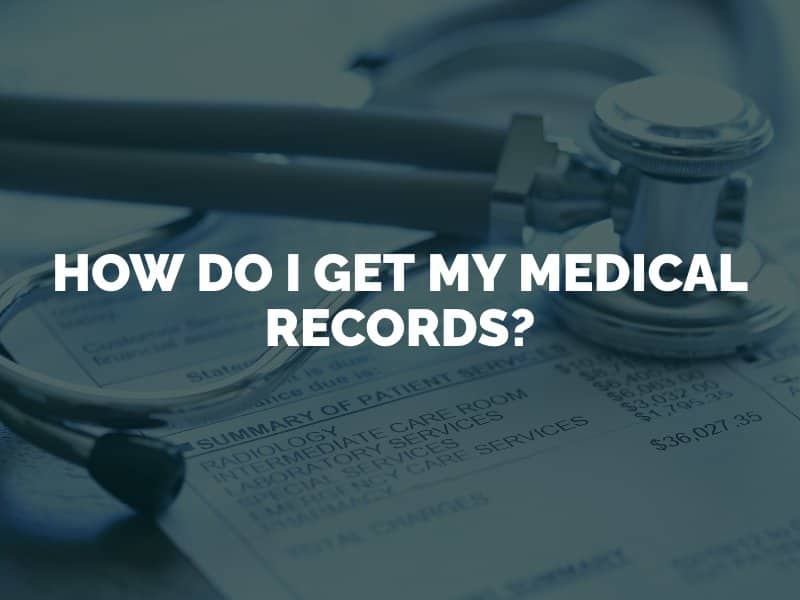Medical records are crucial if you are injured and wish to obtain compensation from an insurance company or through a personal injury claim. Whether it’s a car accident, a slip and fall, or medical malpractice, you will need to obtain your medical records and keep track of all of your visits, bills, and treatment.

If you wish to file an insurance claim or a personal injury claim, the amount of compensation you receive will be directly related to the information in your medical records. In any type of injury claim, you will be seeking economic damages, which is compensation primarily for any medical expenses and lost wages due to time off work. The calculation for the medical expenses can be very straightforward in many cases. How much did you spend on hospital visits and treatments? What will you need to spend in the future because of the injuries you suffered? How much work did you miss because of medical appointments and treatments? How long will you have to be off work because of your injuries? All these questions can be answered primarily through your medical records.
Obtaining medical records can be simple in some circumstances, but not always.
Certain medical records may not be accessible, even to the patient. According to the Health Insurance Portability and Accountability Act (HIPAA), you are not entitled to view some of the information, including the following:
Medical information that a provider believes could endanger the health and safety of another individual.
If you’ve decided to file a personal injury claim and need your medical records, you should speak with your Denver personal injury attorney about requesting them. You can either request them on your own, or you can give your attorney authorization to obtain them. The request must be in writing, and you will need to provide your name, social security number, date of birth, address, and patient account number. In this request, you can ask for all medical records from that particular provider, or you can request records for a certain range of time.
Hospitals and doctor’s offices have release forms they can provide you with. Once you fill that out, you or your attorney will be able to obtain the medical records.
After you’ve been in an accident and suffered injuries, it’s likely that either your insurance company or the responsible party’s insurance company will request to see your medical records so they can determine potential pay outs. You should always speak with a lawyer before signing anything for an insurance company. You might think you’re signing a release for records pertaining to the accident, but the form you’re signing may actually give the insurance company access to other records, which could inadvertently provide them with evidence of pre-existing injuries.
Insurance adjusters will typically take whatever steps necessary to deny your claim or pay out as little money as possible. When you have an attorney review the release you’re signing, you can be sure that you aren’t providing access to anything that would damage your claim.
If you need help obtaining your medical records for a personal injury claim or you have questions, contact us today to set up a free consultation.